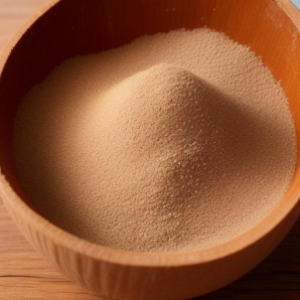In the ever-evolving landscape of sweeteners, coconut sugar has emerged as a popular alternative, captivating the taste buds of health-conscious consumers. But, is coconut sugar truly a healthier option compared to regular sugar and other sweeteners? Let’s delve into the world of coconut sugar and explore its nutritional profile, glycemic index value, and how it stacks up against its sweet counterparts.
Understanding Coconut Sugar:
 Coconut sugar, also known as coconut palm sugar, is derived from the sap of the coconut palm tree. Unlike refined white sugar, which undergoes extensive processing and bleaching, coconut sugar is considered a more natural and minimally processed sweetener. It retains some of the nutrients found in the coconut palm sap, including small amounts of minerals like iron, zinc, calcium, and antioxidants.
Coconut sugar, also known as coconut palm sugar, is derived from the sap of the coconut palm tree. Unlike refined white sugar, which undergoes extensive processing and bleaching, coconut sugar is considered a more natural and minimally processed sweetener. It retains some of the nutrients found in the coconut palm sap, including small amounts of minerals like iron, zinc, calcium, and antioxidants.
Glycemic Index Comparison:
One of the key considerations when evaluating sweeteners is their impact on blood sugar levels, often measured by the glycemic index (GI). The glycemic index categorizes foods based on how quickly they cause blood sugar to rise. Coconut sugar has a lower glycemic index compared to regular sugar, meaning it has a slower and steadier impact on blood sugar levels.
While regular sugar has a glycemic index of 65-100, coconut sugar typically falls in the range of 35-54. This lower glycemic index suggests that coconut sugar may result in a slower and more sustained release of glucose into the bloodstream, potentially providing a more stable energy source and reducing the risk of sudden spikes and crashes.
Comparisons with Other Sweeteners:
In the vast landscape of sweeteners, coconut sugar competes with various alternatives, each with its unique characteristics. Let’s explore how coconut sugar compares to some popular sweeteners:
- Honey: Like coconut sugar, honey contains trace amounts of minerals and antioxidants. However, honey’s glycemic index can vary depending on its composition. While some varieties have a lower GI, others may be similar to or higher than that of regular sugar.
- Maple Syrup: Maple syrup offers a rich flavor profile and contains some beneficial compounds, including antioxidants. Its glycemic index is moderate, falling between that of coconut sugar and regular sugar.
- Stevia: Stevia, a natural sweetener derived from the leaves of the Stevia rebaudiana plant, is known for its zero-calorie nature. Stevia has a negligible impact on blood sugar levels, making it a suitable option for those monitoring their glucose intake.
While coconut sugar presents a promising alternative to regular sugar, it’s crucial to remember that moderation is key in any sweetener consumption. The lower glycemic index of coconut sugar suggests potential benefits for those seeking a more stable blood sugar response. However, individual responses can vary, and consulting with a healthcare professional or nutritionist is advisable, especially for those with specific health concerns.
In the realm of sweeteners, diversity offers consumers the freedom to choose based on personal preferences and health goals. As we continue to explore and understand these alternatives, coconut sugar stands out as a flavorful and potentially healthier option in the quest for a balanced and satisfying sweetness.
